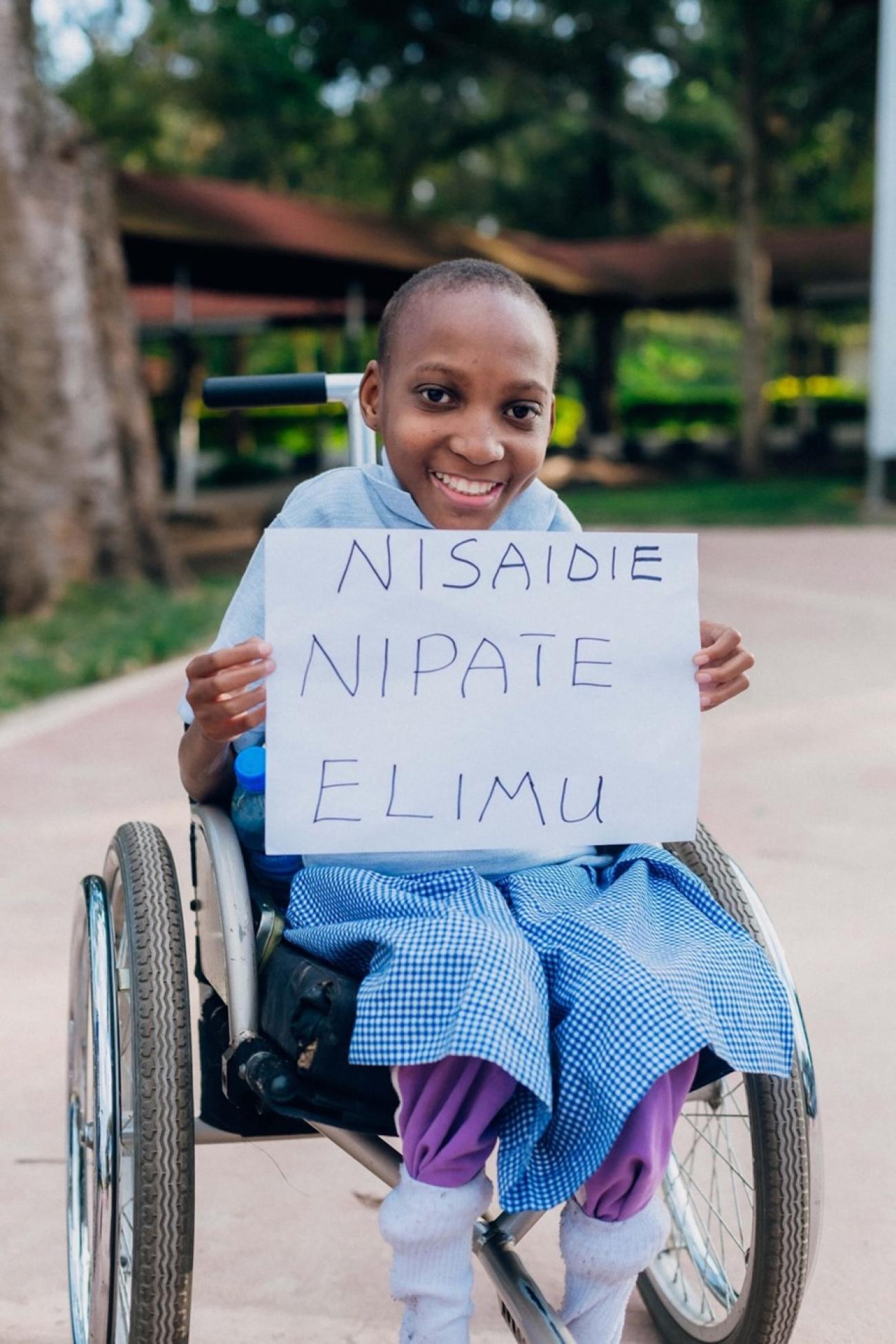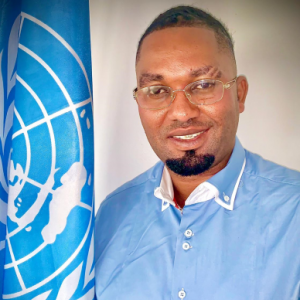Disability is not Inability: An Inspiring Story from Nchagwa Matiko

.
Nchagwa Matiko (not her real name) is a 17-year-old girl studying in secondary school in form three. She was born without disability in a farming family that lives in Tarime town council. Sadly, at the age of one year and six months, she contracted malaria. During treatment, her right leg was paralysed a few days after receiving an injection. Her parents managed to get further treatment for the leg, but it took three months, and although the leg recovered, it was bent and made Nchagwa disabled. The father abandoned the family and married another woman soon after Nchagwa’s final treatment because he could not accept having a child with a disability as it was a sign of a ‘curse’.
The abandonment by her father and frequent rebuke from her father's relatives mentally tortured her, and she often blamed herself for her father leaving the family. Nchagwa also experienced stigma and discrimination from her community due to her disability, which made her feel discouraged and rejected.
“I felt like I am not a human being from how my relatives mistreated me,” Nchagwa said.
Despite the challenges, she completed and passed her primary education and continued with secondary education under her mother’s care. At her school, Nchagwa received psychosocial support, counselling and guidance from the child rights club and the club teacher through the Chaguo Langu Haki Yangu - ‘My Rights My Choices’ programme, funded by the Government of Finland and implemented by UNFPA in partnership with ATFGM Masanga in Mara region. The child rights clubs promote empowerment to children in school to know their rights and facilitate them to enjoy their childhood and reach their full potential through promoting an enabling school environment. The teachers who run the clubs are trained by the district social welfare officer for three days using a government guideline on forming the clubs in and out of school. Through the clubs, children like Nchagwa receive life skills education, including information about puberty and how to engage with friends. This gives them the confidence to express their ideas and discuss challenges in the community, family and even in schools. Also, children are encouraged to report to the Child Helpline #116 if they experience any challenge of gender-based violence, child marriage and female genital mutilation.
With support from the child rights club coordinator and club teacher, Nchagwa became friends with other children within the club, who saw her rich talent for singing and drawing. Nchagwa commended the child rights club, “I’m grateful that before joining the club, I was not confident enough to socialise with other children in activities such as singing, playing, and acting in drama. I am grateful for the peace and joy brought into my heart by the Chaguo Langu Haki Yangu programme through support from the child rights clubs. The psychosocial and counselling support from the child rights club at school has made me feel I am not different from other children without disabilities.”
Since Nchagwa joined the club, she has progressed well with her secondary education and is fully active in the club activities. She can confidently speak before other club members and other children in school and is involved in raising awareness of children’s rights, especially children with disabilities. Through the club, she has also become aware of female genital mutilation and how it negatively affects girls' physical and psychological health throughout their lives. She is courageous enough to raise awareness of child abuse and other forms of gender-based violence among her fellow children with disabilities.
Nchagwa gave thoughtful advice, “Ignorance is a disease in the community, and it can be cured by gaining knowledge. I am expecting to educate the community about all harmful beliefs and behaviour towards children, including children with disabilities.”
Speaking about her future, Nchagwa is optimistic about becoming an artist and a role model to other children with disabilities to empower them to follow their passions and not hesitate to explore their talents.
Nchagwa’s mother has set up a small shop business that continues to enable her to provide for her children's basic needs. Nchagwa’s mother appreciated the courage her daughter acquired through the Chaguo Langu Haki Yangu programme supporting school clubs and reports, “My daughter used to be very shy and isolated; however, this has changed after the support from the child rights clubs. Nchagwa now interacts well with her peers and has made many friends.”
Chaguo Langu Haki Yangu - ‘My Rights My Choices’ is a three-and-a-half-year programme (2021-2025) implemented by UNFPA, the United Nations Sexual and Reproductive Health agency, with funding from the Government of Finland. The programme’s goals are to ensure that the rights and choices of women and girls, particularly women and girls with disabilities, are protected and enhanced through a multi-sectoral and holistic response that tackles gender-based violence and harmful practices, including teenage pregnancy, child marriage and female genital mutilation. The programme is implemented as part of activities to realise the National Plans of Action to End Violence Against Women and Children (NPA-VAWC) in Mainland Tanzania (2016/17-2021/22) and Zanzibar (2017-2022).
Direct beneficiaries: Adolescent girls and young women, particularly women and girls with disabilities, living in Shinyanga (Kishapu and Kahama districts) and Mara Regions (Tarime and Butiama districts) and Zanzibar (Urban district in Unguja and Chake Chake district in Pemba) who are vulnerable to or survivors of GBV, FGM and early and child marriage. Indirect beneficiaries: Affected families, targeted communities and government institutions whose capacities will be strengthened to prevent and respond to gender-based violence and harmful practices, including teenage pregnancy, child marriage and female genital mutilation, and to uphold the rights of women and girls, particularly women and girls with disabilities.
The programme is enhancing coordination, knowledge-sharing and policy development to support the implementation of the NPA-VAWC in Mainland Tanzania and Zanzibar in collaboration with the Government of the United Republic of Tanzania, including local government authorities.
According to the recently released Tanzania Demographic and Health Survey from 2022, the prevalence of Intimate Partner Violence (Physical, Sexual or Emotional) in Mara region declined from 76% to 66%, while the FGM prevalence declined from 32% to 28%. Teenage pregnancy fell from 37% in 2015/16 to 31% in 2022. The prevalence of women aged 20-24 who reported being married by age 18 remained unchanged at 38% during the same period.
NB* Names are changed. Photos are not related to the Storyteller.
Written by





